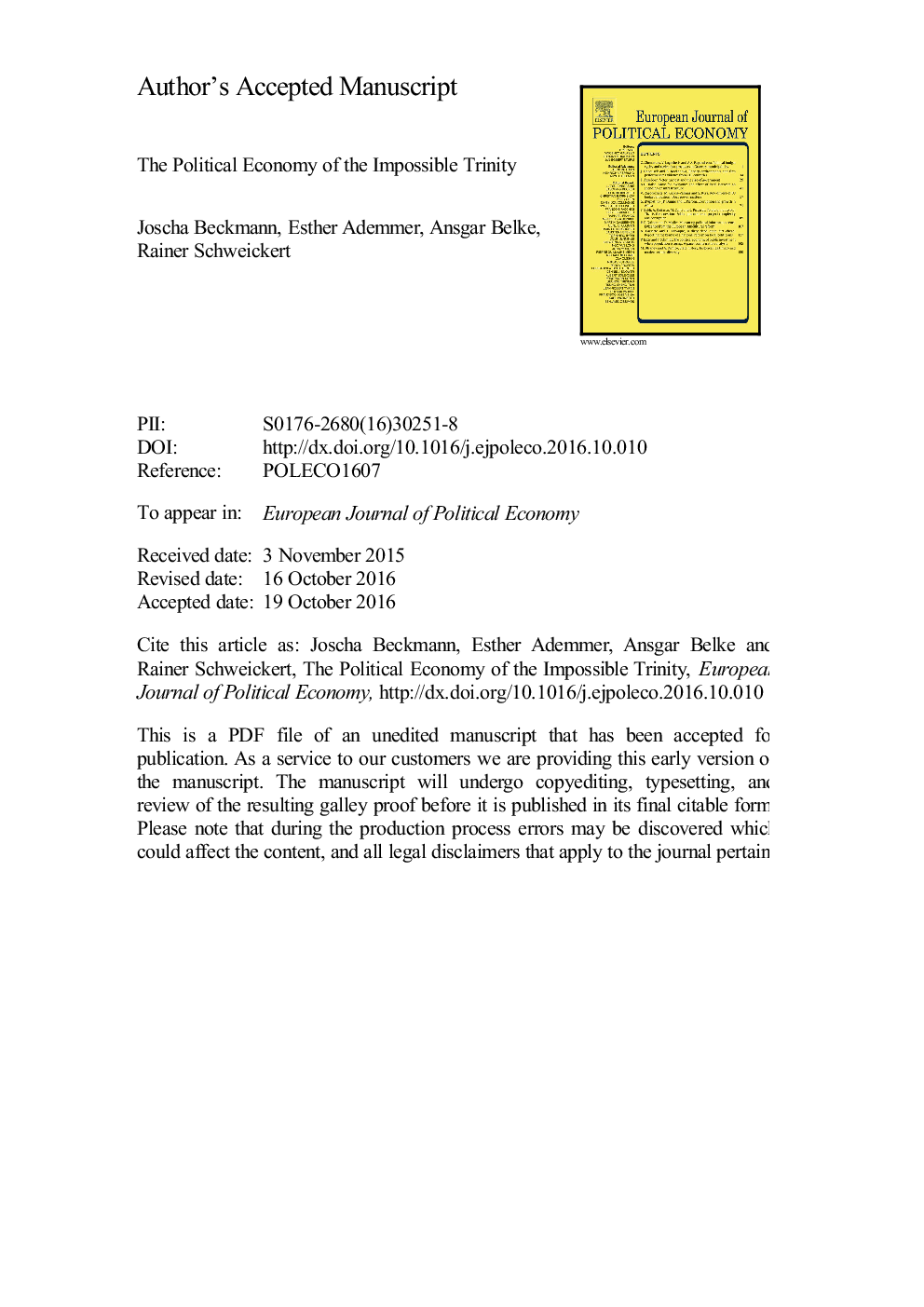ترجمه فارسی عنوان مقاله
اقتصاد سیاسی تثلیث غیر ممکن است
عنوان انگلیسی
The political economy of the impossible trinity
| کد مقاله | سال انتشار | تعداد صفحات مقاله انگلیسی |
|---|---|---|
| 86369 | 2017 | 49 صفحه PDF |
منبع

Publisher : Elsevier - Science Direct (الزویر - ساینس دایرکت)
Journal : European Journal of Political Economy, Volume 47, March 2017, Pages 103-123
ترجمه چکیده
این مقاله با در نظر گرفتن نگرانی های اقتصادی سیاسی، سیاست سهگانه سیاست اقتصادی را بازنگری می کند. ما استدلال می کنیم که تأثیر ایدئولوژی دولتی بر استقلال پولی، ثبات نرخ ارز و محدودیت جریان سرمایه باید در محدوده گسترده تر محدودیت های اعمال شده توسط سه گانه غیر ممکن به جای محدودیت های معمول یک بعدی بررسی شود. با استفاده از اندازه گیری واقعی این محدودیت ها برای نمونه ای از 111 کشور از سال 1980 تا 2010، ما نشان می دهیم که تأثیر ایدئولوژی دولت بر موقعیت یک کشور در این سه حکومت، مستلزم وابستگی بسیار است: ما متوجه می شویم که تاثیر آن بر ثبات نرخ ارز و پولی استقلال بین کشورهای توسعه یافته و کشورهای در حال توسعه متفاوت است. ما همچنین نشان می دهیم که تأثیر ایدئولوژی دولتی بر این دو جزء سهملی، بستگی به موقعیت چرخه تجاری اقتصاد مربوطه دارد. به نظر می رسد که دولت های چپ گرا به تقویت نرخ ارز در برابر استقلال پولی در صورت شکاف تولید منفی پایبند باشند. پیشنهاد می کند که تغییرات در ترجیحات معمول خود را در دوران سخت اقتصادی انجام دهند.

